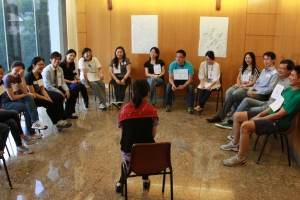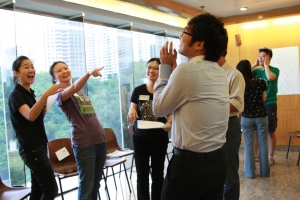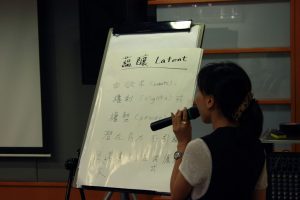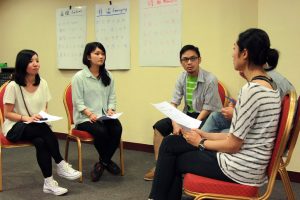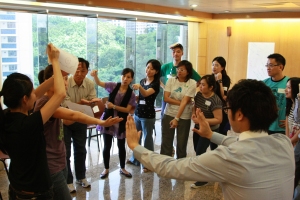“Forum Theatre” was the key concept stemmed from the “Theatre of the Oppressed”, a type of theatre created by the innovative and influential Brazilian Augusto Boal. Boal created Forum theatre as a forum for teaching people how to change their world. In this process the actors or audience members could stop a performance, often a short scene in which a character was being oppressed in some way. The audience would suggest different actions for the actors to carry out on-stage in an attempt to change the outcome of what they were seeing.
Nowadays, forum theatre has been widely applied in corporate learning development, social and community transformation, family relations and in education sectors.
可以透過另一個身分明白多左其他人的問題或難處
I understand the problems and difficulties of others through stepping into others’ roles.
最深刻是最後一起討論,探討每個角色應如何改善解決衝突
The most remarkable part is the discussion at the end, on how each character can change to resolve the conflict.
多角度思考不同人的立場,了解想法的源頭
Thinking from different people’s perspectives, understanding where do the ideas and thoughts come from.
明白每個問題也有很多解決方法,只要肯走出一步
There is solution to every problem, all you need is to make the first move.
學懂用不同角度去想,特別是想解決方法相當有用
Learnt to think at different angle, and the part on problem solving was especially useful.

